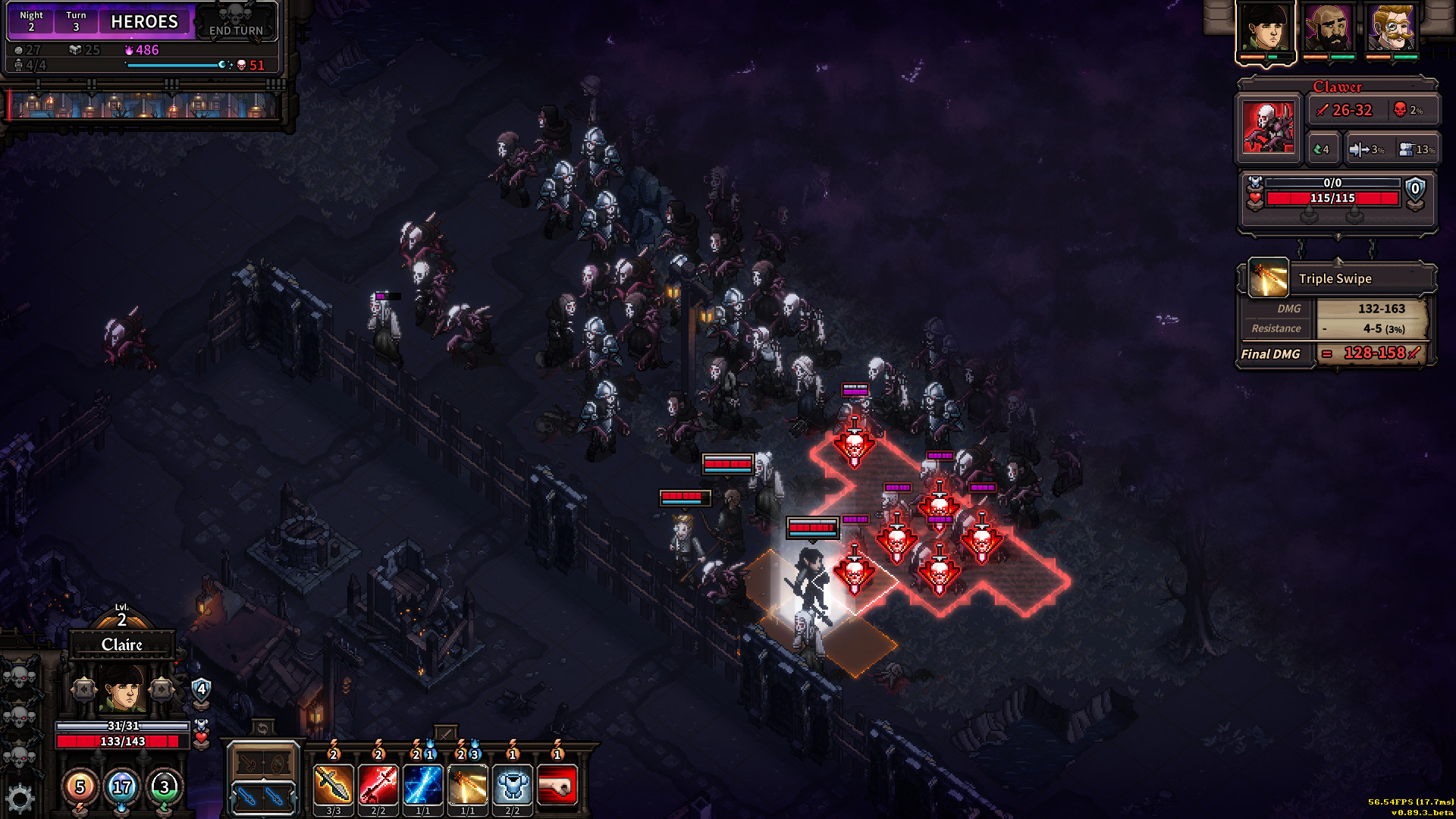
Everything changed when I bought the hammer. There I was, bemoaning the underpowered melee characters and their paltry little swords, when I spent some mystical meta doodads and unlocked it in The Last Spell’s in-game shop. Now, rather than a feeble Gondorian defending Helm’s Deep from advancing orcs, I was Gimli, son of Gloin, keeping tally as I smushed my enemies into pâté. Heave, smush. Heave, smush. The mantra of the hammer. Poetry in motion.
Hammer in hand, and with my equally powerful mage and archer pals by my side, I felt like a band of desperate heroes, forever moments away from eternal glory or utter ruination. Early access roguelite The Last Spell takes that feeling of a desperate final stand against impossible odds, and turns it into a tactics game. It’s Helm’s Deep and the Battle of Winterfell, as you defend a crumbling city from advancing zombie hordes.
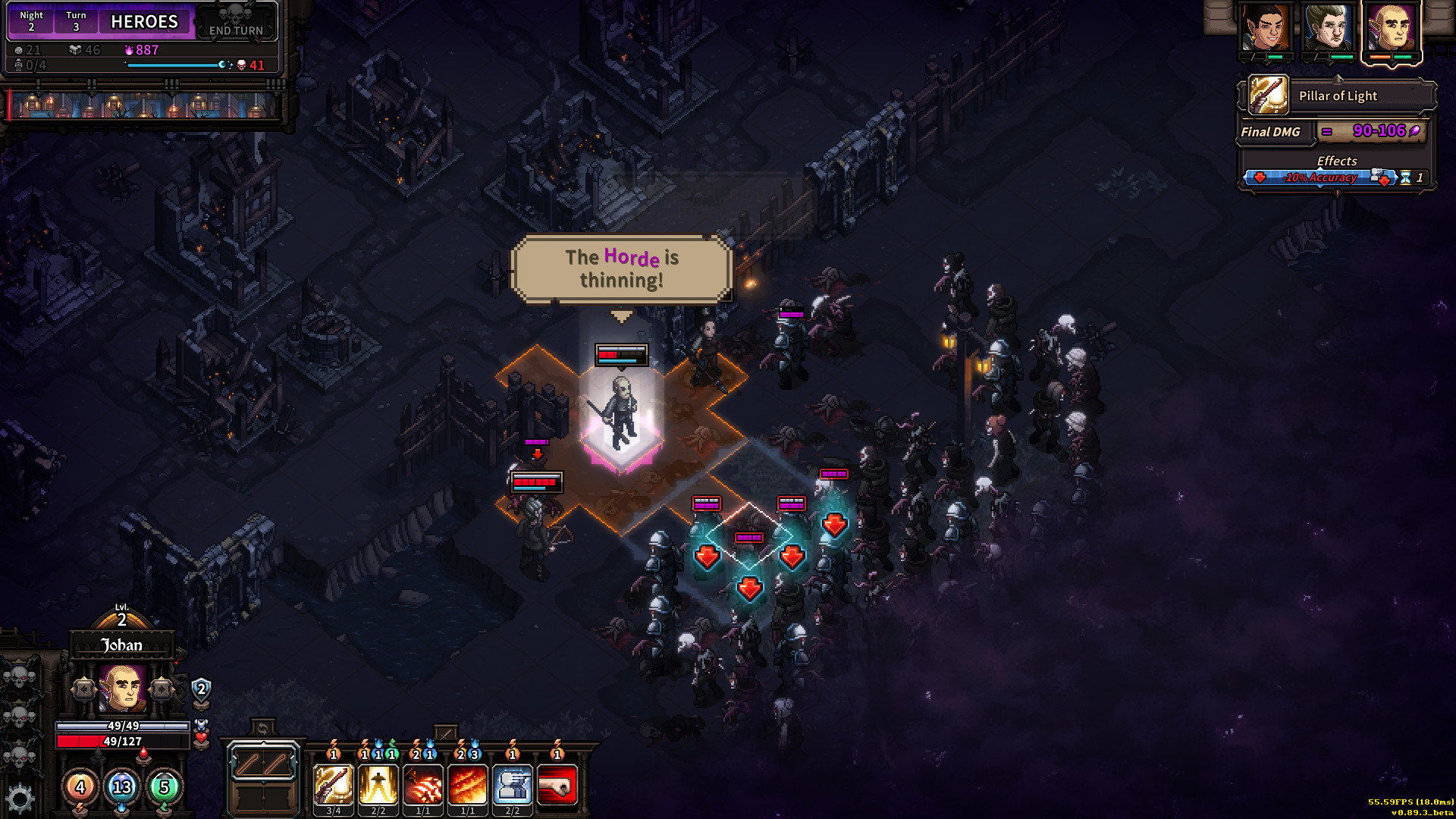
There are a few differences. Where Helm’s Deep and Winterfell were sturdy medieval fortresses, the city you’re defending here is comprised of a few shacks and a handful of wizards performing a spell. They’re attempting to dispel the magic that has nearly destroyed this fantasy world and spawned the mist turning folk into zombies: a mist that’s slowly encroaching on your settlement. If the zombies and demonic creatures wreck the wizards’ magic circle, it’s game over. If all your heroes die, it’s game over, and you’ll restart the days-long siege from the very beginning.
I have never seen so many enemies in a turn-based tactics game.
Primarily, this is a turn-based tactics game. It’s The Last Spell’s chief alchemical ingredient. Every night, you’ll deploy your heroes to the city’s walls—and that’s presuming there’s walls still standing —where they’ll heave and smush, loose arrows and fling spells at the creeping zombies, winged bat-things, and other horrors. You have to kill every last one of them for the hellish night to be over with, and that’s easier said than done when they can have you literally surrounded. I have never seen so many enemies in a turn-based tactics game.
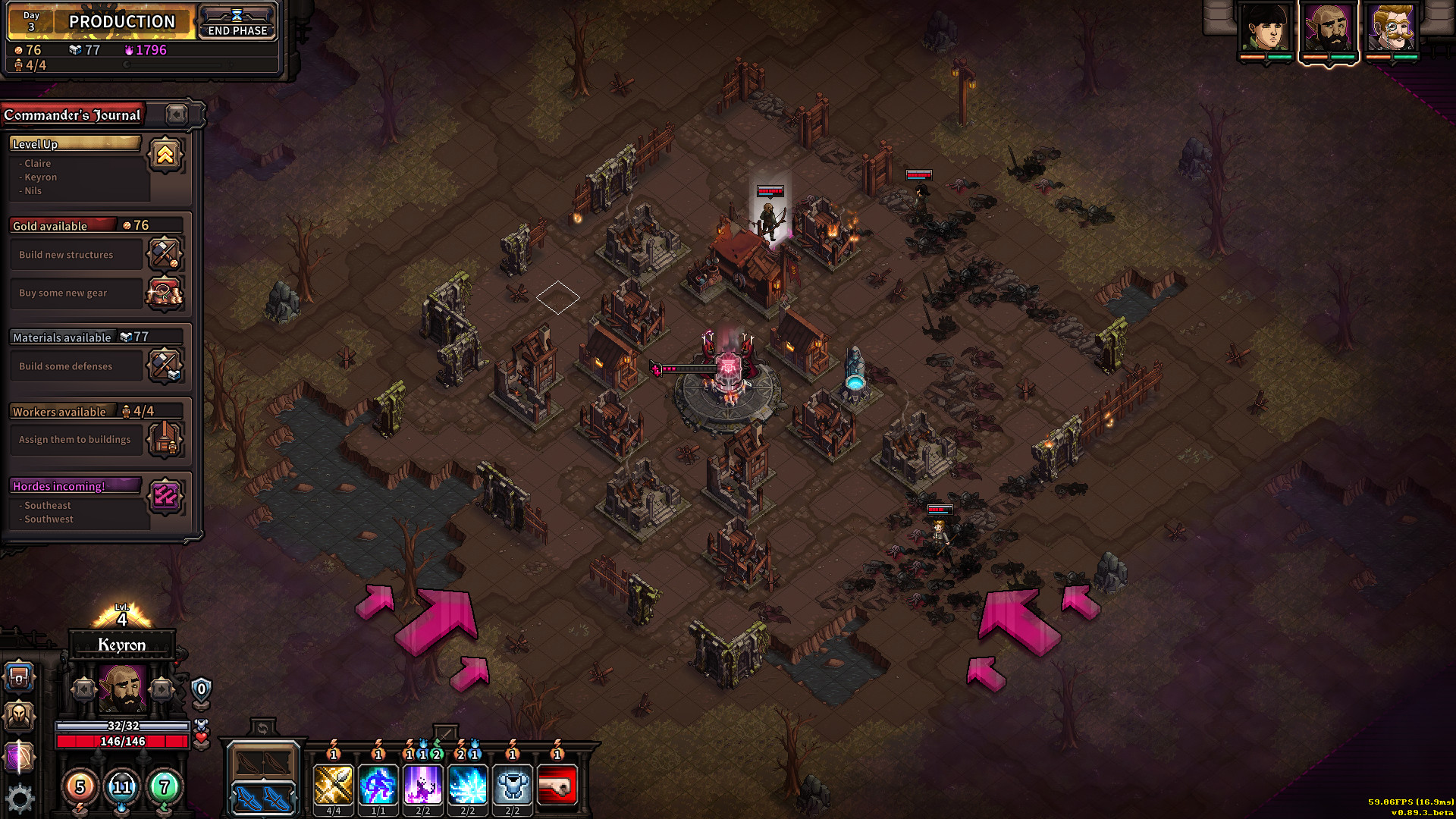
The game starts you with just three heroes, which might seem daunting if you’ve seen the screenshots. But I call them heroes for a reason: they’re a lot more capable than the average Final Fantasy Tactics or XCOM grunt. Not only can they cover quite a lot of ground—more than the shuffling monsters, at any rate—but they can perform multiple actions during every turn.
That might mean three or four fancy-looking, and pretty devastating spells, or your warrior wading into the swarm to single-handedly squash a thicket of zombies, using skills purposely designed for such numbers-thinning. The Last Spell tailors the tactics formula to suit its movie-epic combat. While the monsters do fight back, enemy turns are compressed together, so you don’t have to sit there while 60 zombies each politely shuffles forward.
Skills are derived from your equipped weapons—every weapon type has its own skill set—and they can be a lot of fun to use, as you rain down arrows on the horde, or you use your spear to make a zombie kebab. But these are tactical choices too. Can you afford to waste your precious mana points (which only recharge slightly between battles), and can you really risk sending your warrior unaided into the horde? The state of the battlefield persists between combat, so you’re forever weighing caution against these (occasionally necessary) acts of heroism. One bad night will beget a worse one, the following day.
The biggest gaming news, reviews and hardware deals
Keep up to date with the most important stories and the best deals, as picked by the PC Gamer team.
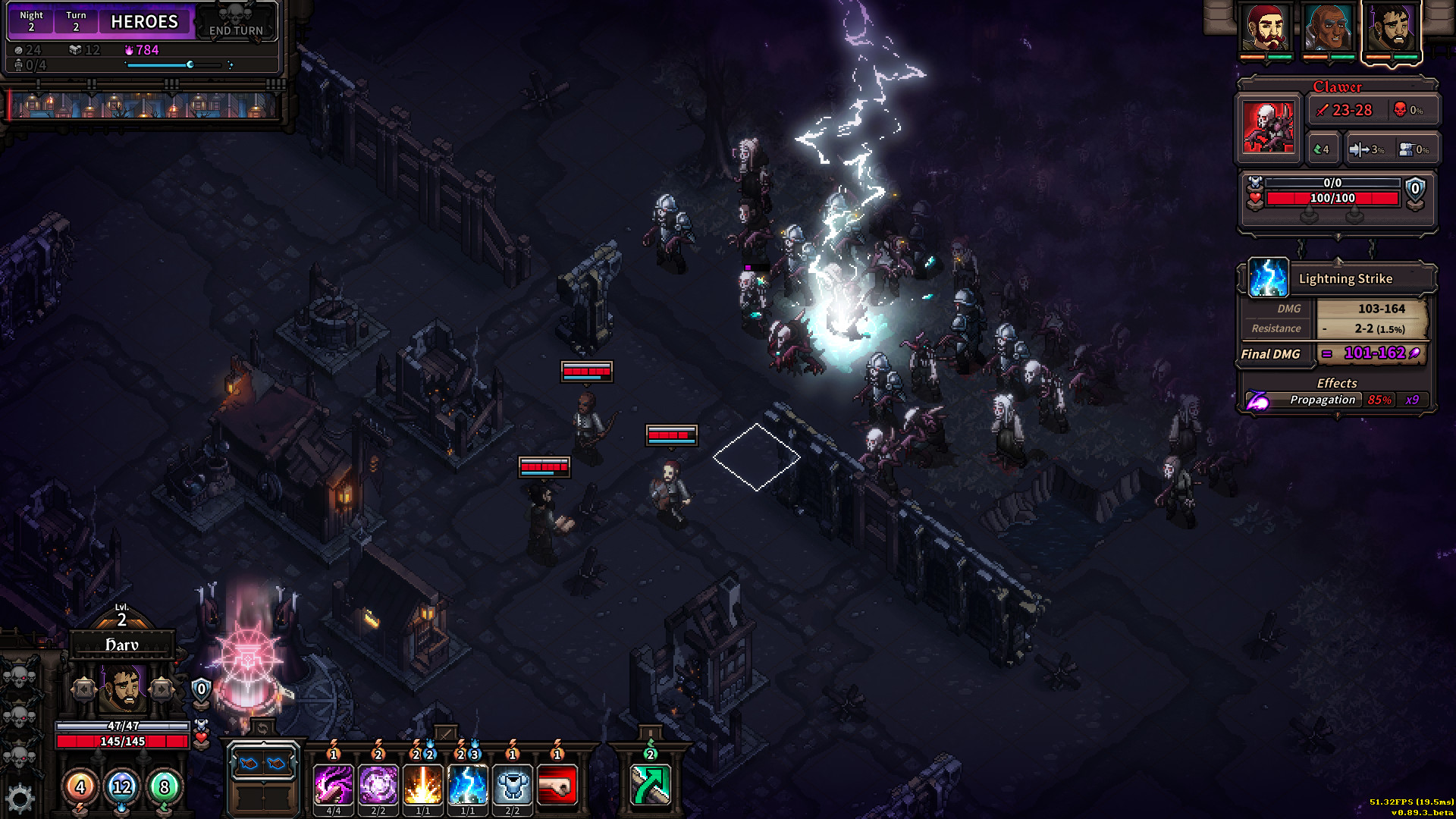
If you do win the battle, then congratulations, there’s another one coming imminently. But first you have the daytime to prepare. Combat rewards with gold that can be spent constructing facilities or buying gear for your characters, and materials that can be used to build defences, including bits of wall.
Invisible city workers will tear down ruins for raw materials, or patch you up, but there are never enough resources to do, or buy, everything you might want. You make do, of course, buying scraps of armour here and plonking down cheap barricades there, while trying your hardest to keep your defences intact during the next battle. A battle that will be even harder, boasting more powerful enemies, more enemies, and monster spawning points pitched closer to the city.
If you do win the battle, then congratulations, there’s another one coming imminently.
The Last Spell is tough. It comes with the roguelite territory. As do the meta upgrades you acquire from a couple of helpful deities. The demonic creature consumes Tainted Essence, a currency earned via feats in battle, while the angelic deity rewards you for reaching achievement-style milestones, such as surviving five nights in a single run.
Both unlock things that make the game a little easier, and a little more interesting, for example blessing the rickety city with a few ancient stone walls, or adding newer, more varied weapons—my beloved hammer included—to the city’s shop.
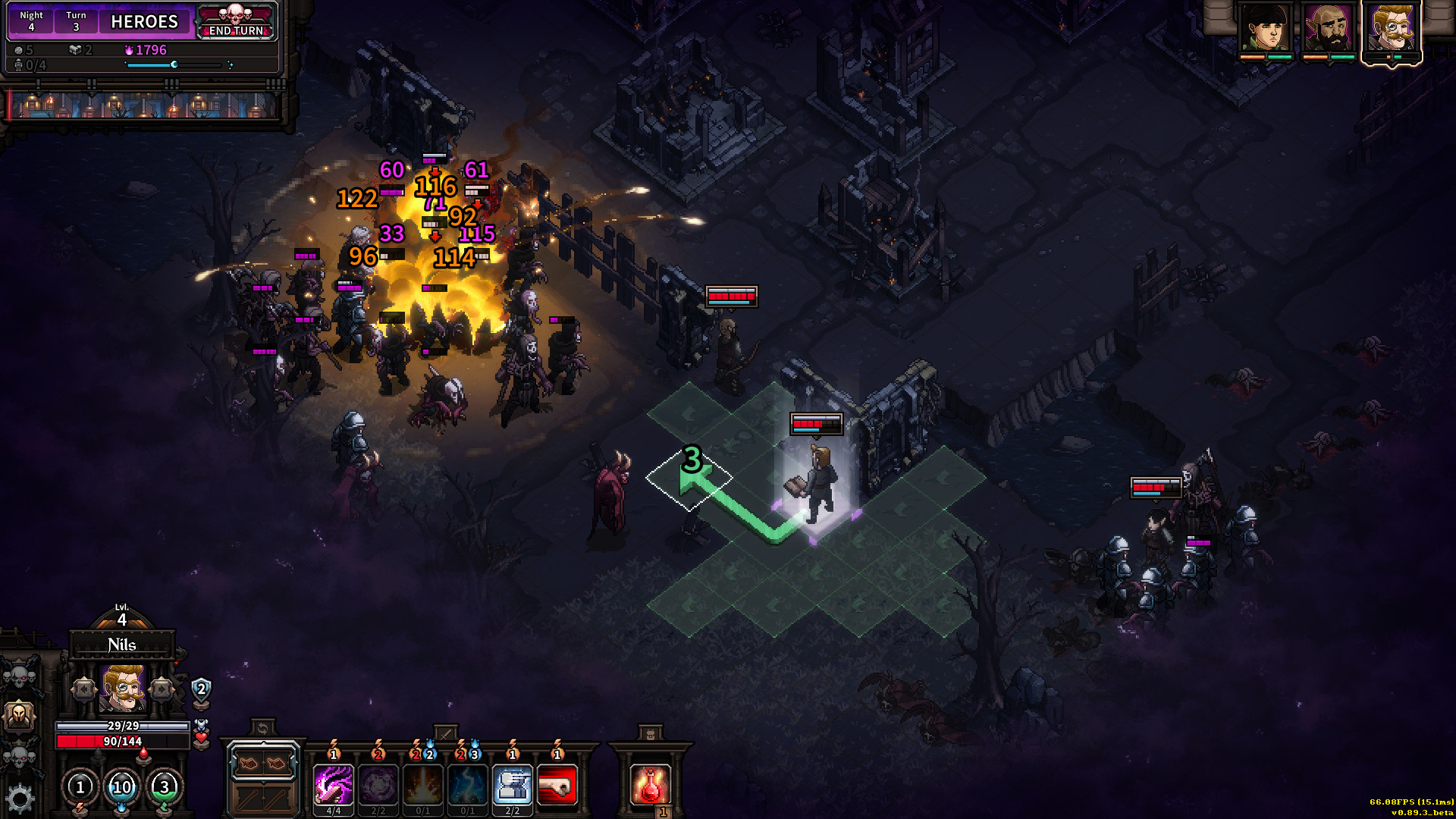
Those meta unlocks are holding my attention, just about, by tantalising with tempting upgrades including new types of production buildings, and stronger defensive walls. There’s a solid foundation here—and occasionally tense, thrilling combat that evokes some of the best parts of epic movie battles. I’m just tired of having to fight essentially the same battles, again and again.
These unlocks are pretty frequent, but I still hate that we’re expected to grind to make The Last Spell a more interesting game, as well as one we might conceivably win. At least there’s an Easy mode that lets you improve some of your starting conditions, say by adding an extra hero, or dishing out more materials and gold at the start of the game.
My biggest problem with the game as it stands now is a lack of variation. Sure, the procedurally generated heroes change at the start of every run—their names, portraits, and a few little quirky stats—but they’re still the warrior, archer and mage, and they’re still defending a very similar-looking city, in a series of very similar-feeling battles. The opening battle in particular now feels like a chore to get through, as it’s become too easy to really require any thinking, but it still needs doing during every run.
Tom loves exploring in games, whether it’s going the wrong way in a platformer or burgling an apartment in Deus Ex. His favourite game worlds—Stalker, Dark Souls, Thief—have an atmosphere you could wallop with a blackjack. He enjoys horror, adventure, puzzle games and RPGs, and played the Japanese version of Final Fantasy VIII with a translated script he printed off from the internet. Tom has been writing about free games for PC Gamer since 2012. If he were packing for a desert island, he’d take his giant Columbo boxset and a laptop stuffed with PuzzleScript games.


